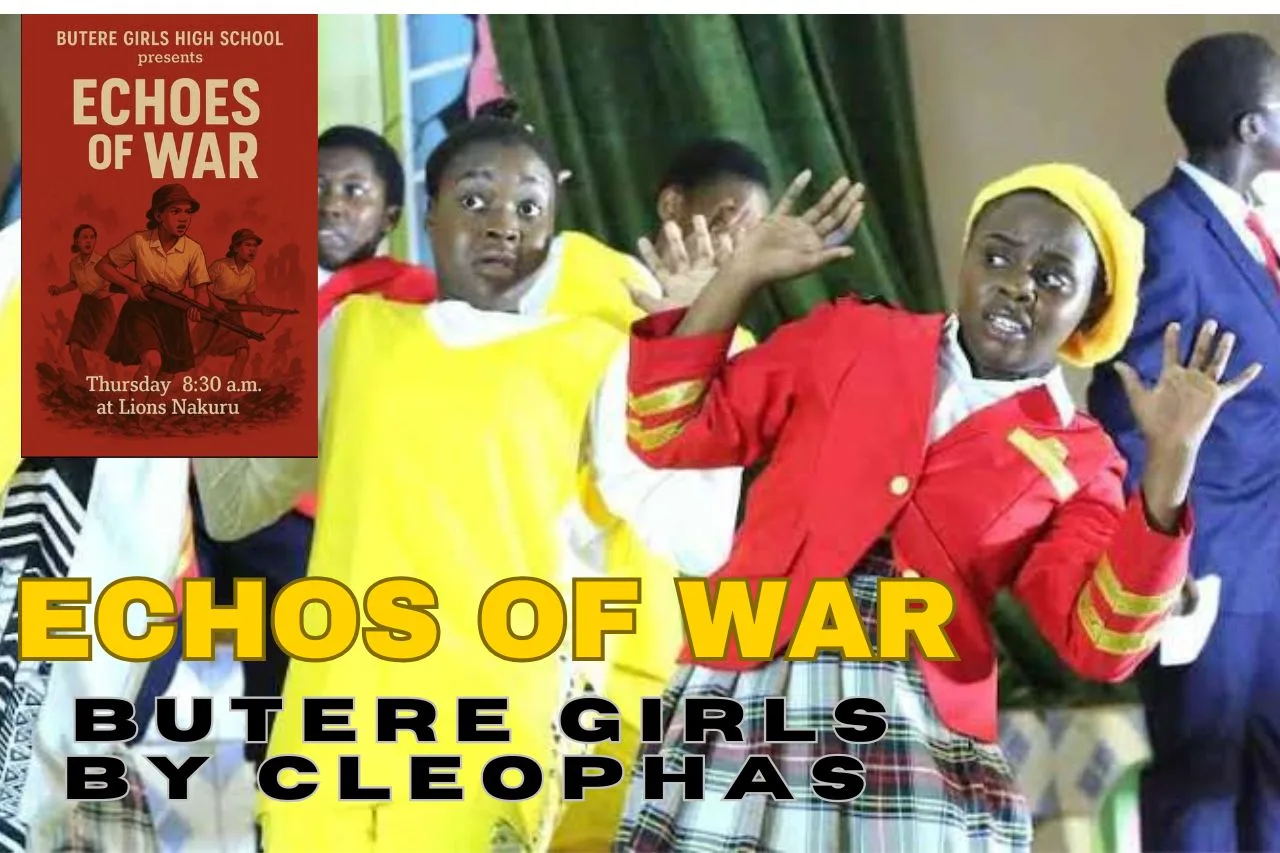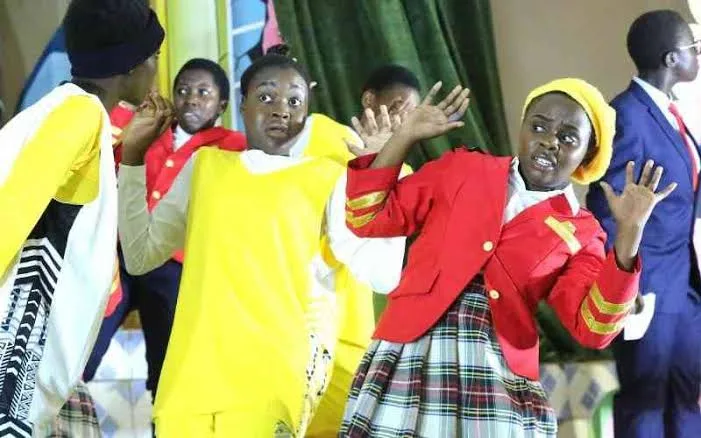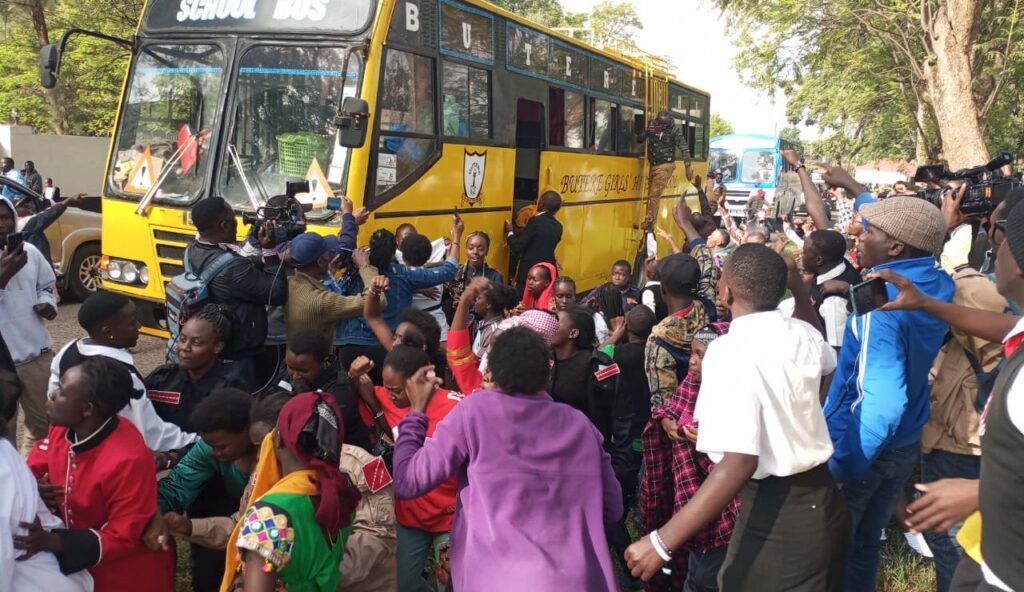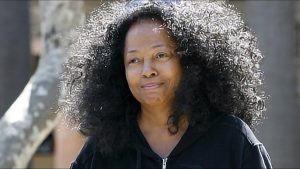
Echoes of War Butere Girls
Butere Girls’ “Echoes of War” play was silenced at the 2025 National Drama Festival in Nakuru, sparking national protests, student walkouts, and a deeper conversation about art, freedom, and courage in Kenya.
In the heart of Nakuru at the 2025 National Drama and Film Festival, a performance that was meant to last just under 30 minutes echoed through the nation in ways no one could have imagined.
Butere Girls High School, famed for their artistic bravery, were blocked from performing their powerful play “Echoes of War” a drama that now lives far beyond the stage.
The script, authored by politician and playwright Cleophas Malala, was set to be one of the highlights of the festival. Drawing parallels to 2013’s controversial “Shackles of Doom”, another Butere Girls play that challenged tribalism and inequality, “Echoes of War” dared to tackle war, political unrest, and the haunting silence of injustice.
But when the curtains were supposed to rise, what followed instead was state resistance, student protest, and a collective national outcry.
The Silencing That Roared Louder
At Nakuru’s Nyayo Gardens, as the cast prepared for the stage, the atmosphere grew tense. Over 300 police officers patrolled the grounds, according to artist Willie Oeba, who shared his chilling experience on social media:
“Police walizima stima, wakarusha teargass na kufukuza watu.” The power was cut, teargas was thrown, and art was silenced, yet something even more powerful erupted.
The students from Butere Girls refused to perform after being denied a public address system and the presence of their director, Malala, who had been detained earlier. In solidarity, other schools declined to take the stage. A festival meant to celebrate creativity turned into a national conversation on censorship and youth activism.
Kenya’s Sarafina Moment with Echoes of War

Social media platforms lit up with hashtags like #EchoesOfWar, #ButereGirls, and #RutoMustGo. Videos showed students singing the national anthem instead of performing, a peaceful yet resounding act of defiance.
Veteran journalist Jeff Koinange confirmed that Butere Girls had not been officially stopped from performing, yet they chose not to proceed without the audience they deserved.
Others called this moment Kenya’s “Sarafina” a reference to the iconic South African musical that used art to challenge apartheid.
Notably, Senator Hamida Kibwana and Gathoni Wamuchomba stood firmly with the students, praising their courage.
“Good work Butere Girls!” posted activist Lynn Ngugi, comparing the students to historical cases of student-led protest in the United States, such as the Tinker v. Des Moines ruling on free speech.
Cleophas Malala: Playwright or Political Pawn?
At the center of the storm is Cleophas Malala, former government insider turned dramatist. He was arrested shortly before the performance, allegedly for scripting “Echoes of War.” His lawyer, Ken Echesa, confirmed he remained behind bars as of Thursday evening.
Malala has long used theatre to express hard truths. While critics argue he should separate politics from school festivals, others believe his arrest was a clear suppression of free expression.
As one user on X (formerly Twitter) noted, “History repeats itself when freedom of expression is denied.”

In his last post before detention, Malala wrote:
“I am now being arrested for scripting a play, ECHOES OF WAR. Shame!!!” This wasn’t just about theatre anymore, it had become a mirror to Kenya’s current socio-political landscape.
Butere Girls: More Than Just a Drama Club

For years, Butere Girls has nurtured bold, socially conscious students. Located in Western Kenya, the school is known not just for its academic excellence but for grooming artists and activists. Their alumni include Rachael Ruto, the First Lady of Kenya, whose silence in the matter has sparked criticism from some quarters.
The girls’ refusal to perform was not just about the play, it was a stand for dignity, justice, and the power of youth voices. “Hongera Butere Girls High School,” posted a user referencing a famous U.S. Supreme Court ruling, reminding us all that “students do not shed their constitutional rights at the school gate.”
The Power of Art Cannot Be Silenced: Echoes of War

From the streets of Nakuru to millions online, “Echoes of War” has done something extraordinary—it has inspired a nation to look within, question authority, and defend the arts. It proved that drama is not just a competition piece but a platform for truth, resistance, and national healing.
This story is still unfolding. But whether or not the play is ever performed again, its impact is undeniable.
Final Thoughts:
Let this moment serve as a reminder: Kenya’s youth are not just future leaders; they are leaders now. In a world that often underestimates the power of storytelling, the Butere Girls have shown that art, when used with courage, becomes a revolution.
So to every student, artist, teacher, and citizen who believes in the power of expression stand tall. Because when “Echoes of War” was silenced, the people roared.





